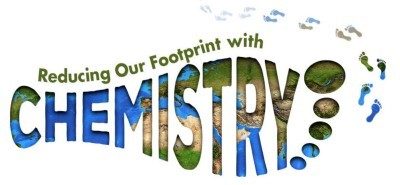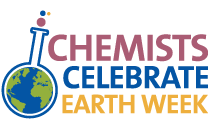
By Neal Abrams and the ACS Committee on Ethics
Have you ever looked at your footprint? Maybe you’ve walked through a puddle or sand on a beach, and seen the steps you’ve left behind. Our footprints leave a trace, and tell a story about where we’ve been.
But actually, we all leave more footprints than just our steps on the ground. A more important “footprint” is the size of the impact we make on the earth. That impact is our environmental footprint, and it includes the energy, food, water, and materials we use or leave behind. By reducing our footprint, it means we are living more sustainably.
You might wonder why it is important to live sustainably — and there are many reasons. It is probably best described by the expression, “Leave no trace.” This means trying to make sure that the planet stays the way we found it, by not consuming or discarding anything that changes how the planet looks or behaves. To live sustainably, we need to reduce our footprint. How can we do that, and how can chemistry help us?
Practicing the 3 Rs
You may have heard of the environmental “3 Rs” — reduce, reuse, and recycle. These are three ways that we can help protect the earth and save resources. We may not think about these ideas every day, but they are important things to do if we want to take better care of our earth. The planet that we live on has limited resources like food, water, minerals, land, and forests. We may run out of these resources if more people keep using more resources and creating more garbage. The result causes harm to the earth we live on.
When we choose to reduce, we use less of something … and that leaves more for others to share. To reuse means we are using the same thing many times instead of just once. If we recycle, we send things like paper or soda cans to a factory so that they can be re-made and used again. By practicing the 3 Rs, we are helping make resources last longer and be available for others, while we’re also producing less garbage. These are good things to do, because we will cause less harm to our earth and keep our land, water, and air clean.
It can be hard to know whether doing a certain action is good or bad, but understanding ethics can help. Ethics is a way of thinking about the effects of our actions on ourselves, other people, and the world. It helps us decide which actions will lead to good things — such as helping, sharing, and caring for others and our earth. Let’s take some time to pay attention to how we use things every day. Are we reducing, reusing, and recycling? If not, how can we do better? Remember, we want to take care of our world today and make sure that people have enough resources later!
Chemistry helps reduce our footprint
Chemistry is the science of studying the material (also called matter) that makes up everything in the universe. Some chemists study materials that exist naturally, and some chemists make new materials based on those that exist already. A chemist who develops sustainable materials is trying to reduce our footprint on the planet through clever new solutions.
For example, chemists have developed materials like water bottles and cups that are made from wood, corn, or other plants. This makes them biodegradable, and the products naturally disintegrate, going back to the earth where they are recycled into the soil and become nutrients for plants. Plastics that aren’t biodegradable are usually made from fossil fuels, which are materials that were formed from the carbon that existed in plants and animals that lived millions of years ago. Because we have a limited amount of fossil fuels available, we say they are not sustainable. In addition, when we’re done using these products, they go into a landfill where they stay there for a long, long time … which is another problem.
Traveling from one place to another can also give us a large footprint, but chemists are working on solving that problem, too. Instead of using gasoline-powered cars, newer electric-powered cars are becoming more popular. The electricity is stored in advanced high-capacity batteries, developed by chemists. In fact, three scientists won the 2019 Nobel Prize in Chemistry for their work in developing the lithium-ion battery we find in today’s cars, phones, and other electronics.
Chemistry is even helping you reduce your footprint in your own home. New, low-energy LED light bulbs were developed by chemists. These bulbs have replaced older, inefficient incandescent lights, which had a very large energy footprint. Chemistry has even helped develop modern building materials that result in much smaller footprints for the buildings we live in. For example, using modern forms of insulation decreases the energy needed to heat or cool our homes.
Even the things we throw away can be treated in a way that reduces our footprint. You’ve probably heard about ways to recycle paper, plastic, and metal so it doesn’t go into a landfill. What about other things, like electronics? In this issue, you’ll learn how we can decrease our footprint by properly recycling things like old cell phones, computers, and printers. The more of these items we recycle, the less materials like gold and copper have to be mined and processed, which leaves more of them for use in the future.
In this issue of Celebrating Chemistry, you’ll explore ways all of us can reduce our footprint by making simple choices about the foods we eat, waste we create, and energy we use. The most important thing to remember is that we are each responsible for our own individual footprint, and making that footprint as small as possible!
Neal Abrams, Ph.D. is Associate Professor of Chemistry at SUNY College of Environmental Science and Forestry in Syracuse, New York. This article was written in collaboration with the ACS Committee on Ethics.


